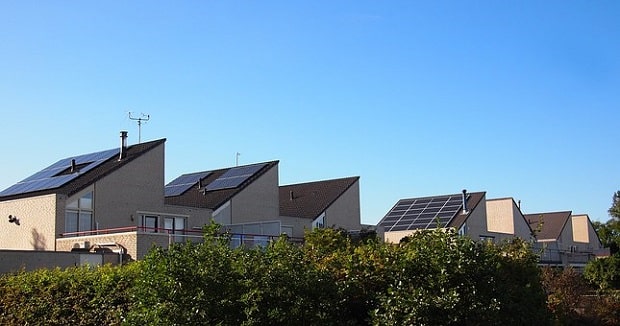The passage of legislation in Germany designed to give renters access to solar electricity has implications for Australia’s rental market.
German Chancellor Angela Merkel’s coalition is widening access to the solar power market for renters. The ‘Tenant Power’ legislation passed this week gives owners of tenant blocks an incentive to install solar panels.
The bill promises owners as much as 3.8 cents a kilowatt-hour for generating rooftop solar power.
The legislation seeks to open solar power to wider groups as the pace of German rooftop installations slows. It’s fallen for a third year, running below the government’s annual 2.5 Gigawatt(GW) goal.
Low home ownership rate drives rental solar
At 50 per cent, Germany has the lowest home ownership rate in the EU, meaning the new laws will affect many residents.

As many as 3.8 million rental properties could benefit from the move, according to the government.
It’s expected owners will pass on subsidies earned through solar to tenants as cheaper electricity. In turn, this will be an inducement to renters to choose solar-equipped properties.
In the UK, the government is taking advantage of solar power to subsidise tenants in public housing.
Australian incentives for solar installation
In Australia there is no incentive for renters to install solar panels because they remain if the tenant moves. Nor is there any incentive for landlords to install solar, as tenants pay the electricity bill.
However, a 2015 survey found 75 per cent of Aussie renters would pay additional rent to live in a home with solar panels installed. Forty per cent said they would pay an extra $10 a week.
Furthermore, there’s an Australian precedent for landlords subsidising tenants. Landlords pay the base amount of the tenant’s water utilities bill, while tenants pay any excess.
If the same model were applied to solar electricity, landlords would pay tenants’ basic electricity needs. This would be generated by solar panels installed by the landlord, who would be remunerated by a feed-in tariff and/or depreciation tax benefits. The tenants would pay for excess electricity use.
Alternatively, landlords could charge more rent for solar equipped properties. Or they could sell their electricity directly to tenants.












































